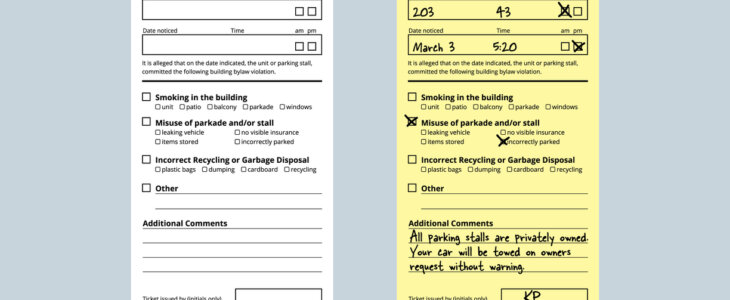Like many states, New York has a points system for identifying high-risk drivers and potentially barring them from the privilege of driving. The more dangerous a driver is, and the more tickets the driver receives, the more points will be added to their driving record. Points may not seem like a big deal until you acquire so many of them that New York no longer allows you to drive. They will also impact your automobile insurance rates and potentially cost you substantial sums of money. However, properly handling your traffic ticket can help you avoid points and protect your driving privileges. Find out how NY Traffic Ticket Lawyers can advocate for you.
How Do Points Work?
A motorist must be convicted of a certain type of traffic offense before a set number of points can be added to their driving record. However, the points total is based on the date of the violation itself, not the conviction. The relevant time period is 24 months: the total number of points on your record are those accumulated over the course of the previous 24 months.
After 24 months have passed since the date of a particular violation, the points for that violation are no longer included in your total. However, the points will still remain on your driving record. This allows your insurance company to use the points against you and increase your premiums. Insurers are risk-averse, so a higher number of points equates to a higher risk that you will get into a major accident. This risk is reflected in higher premiums.
If you get 6 or more points in 24 months, you must pay a Driver Responsibility Assessment fee. This is in addition to any fines, penalties, or surcharges you may be required to pay. If you get 11 points in 24 months, your license to drive may be suspended.
Which Violations Result in Points?
Most traffic infractions that result in points are moving violations, meaning they are related to the operation of the vehicle. A few of the most common ones are:
- Speeding: 3-11 points based on how far over the speed limit the driver was going
- Reckless driving: 5 points
- Failure to stop for a school bus: 5 points
- Improper use of cell phone or texting: 5 points
- Failure to yield: 3 points
- Improper passing: 3 points
- Changing lanes unsafely: 3 points
- Leaving the scene of a property damage incident: 3 points
Which Violations Do Not Result in Points?
Violations that are not related to driving or operating a motor vehicle usually do not result in points. Examples are:
- Bicycle, pedestrian, and parking violations
- Violations related to having an unregistered, unlicensed, or uninsured vehicle
- Violations related to vehicle inspection
- Violations for vehicle weights or dimensions
- Vehicle equipment violations other than inadequate brakes
- Any violation that does not result from the operation of a motor vehicle
How Can an Attorney Help Me?
Points can spell disaster for your insurance premiums and driving privileges, but an attorney can help you explore options for dealing with it. They include:
- Contesting the ticket: Just because you were ticketed does not mean the court will be able to secure a conviction. If the facts tell a different story, we can help you challenge the ticket.
- Ask for reduced charges: You could be eligible to request reduced charges, such as a reduction in speed. This can help lower the number of points you receive.
- Request a DMV hearing: If someone else committed a violation that is on your record, you can ask for a hearing. The purpose of this hearing is not to prove that you were not guilty of the violation.
- Participate in the points reduction program: You can take part in a DMV-approved Point and Insurance Reduction Program (PIRP) course. This will help you prevent losing your license due to too many points and will let you save up to 10% on your automobile insurance.
How Do You Check Points on a New York License?
You can check points on your New York license by creating or logging into your MyDMV account on the New York DMV website, where your driving record shows all active points from the past 24 months and older points that still appear to insurers. Drivers can also request a certified driving record for official purposes.
To review your point status, you can:
- Log into your secure MyDMV account
- View your standard driving record with active point totals
- Request a certified abstract if needed for court or employment
- Confirm whether any violations are close to the 24-month cutoff
- Review past violations that still affect insurance rates
Why checking your point total matters
Understanding your point status helps you:
- Avoid surprise suspensions at 11 points
- Anticipate Driver Responsibility Assessment fees
- Decide whether to contest a pending ticket
- Evaluate whether a PIRP course can help reduce your total
- Monitor accuracy in case of incorrect or duplicate violations
Talk With Our Experienced Traffic Ticket Lawyers
If you have received points on your driving record and want to know more about them, or you are facing traffic charges in the near future, it’s time to retain a dedicated traffic ticket attorney. Give NY Traffic Ticket Lawyers a call today to learn more about how we can serve you.
FAQs
How long do points stay on a New York driving record?
Points stop counting toward your total after 24 months from the violation date, but they remain permanently visible to insurance companies. Insurers may use them to raise your rates.
Can I remove points from my New York driving record?
You cannot remove points entirely, but a Point and Insurance Reduction Program (PIRP) course can reduce up to 4 points from your active total for suspension purposes. The points will still exist on your long-term record.

